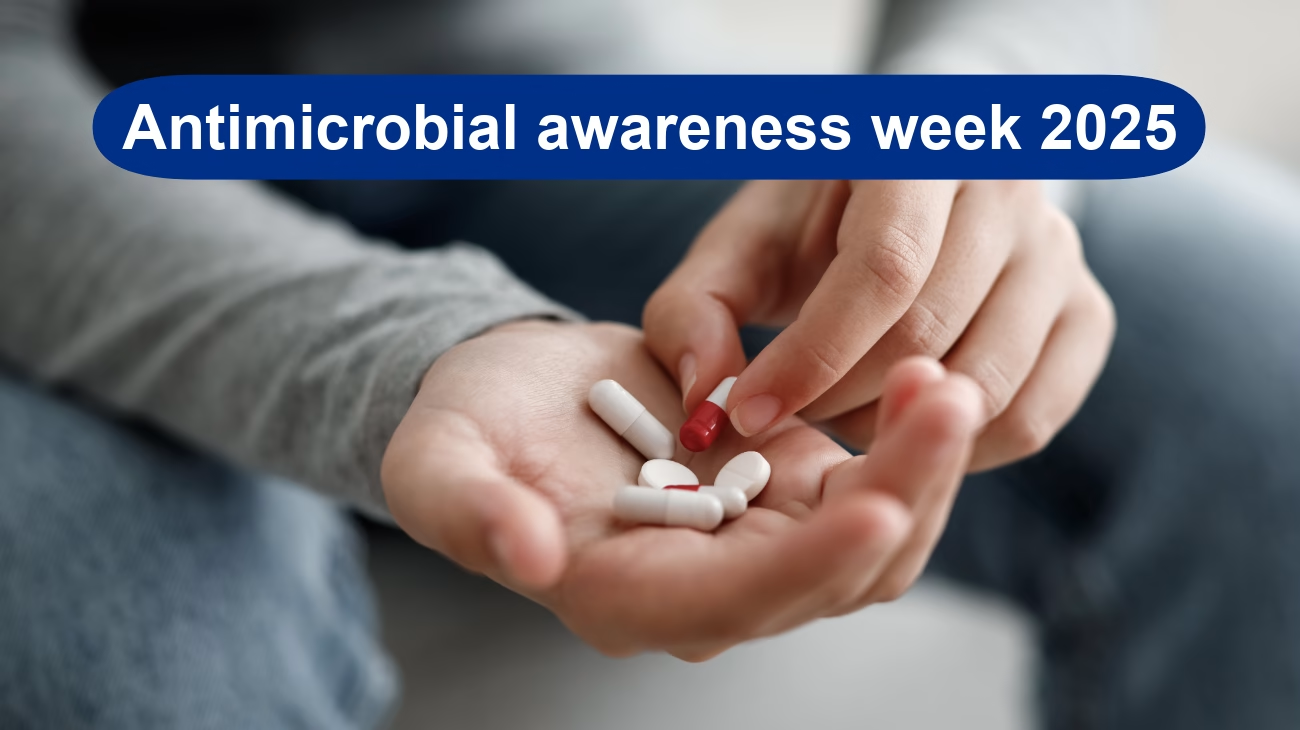Cold and flu season is upon us
Many of us will unfortunately feel under the weather at some point during the winter – a sore throat, headache, aching muscles and a constant runny nose can leave us feeling tired and miserable. But it’s important to remember that most of these illnesses are caused by viruses, and antibiotics won’t help you get better faster.
Antibiotics are great at fighting infections caused by bacteria, but they can’t fight viruses, which is what causes colds and flu.
Why using antibiotics carefully matters
Using antibiotics when we don’t need them can cause problems later. It can make bacteria stronger, so antibiotics might not work when we really need them. Some people, such as those with cancer, a weakened immune system, or long-term health condition, need antibiotics that work if they get an infection.
Without effective antibiotics, even routine medical procedures like hip replacements, chemotherapy, or having your appendix removed could be risky because of the threat of untreatable infections. That’s why it’s so important to use antibiotics only when they’re really needed.
This World Antimicrobial Resistance Awareness Week (18–24 November), the NHS is asking everyone to use antibiotics carefully and to only take them as directed by their GP, nurse or pharmacist.
How to feel better from a cold or flu – without using antibiotics
The good news is that most people with colds or flu will feel better within a week or two. There also are some things you can do to help get better more quickly:
-
get plenty of rest
-
keep warm
-
drink lots of fluid, such as water, to avoid dehydration
-
gargle salt water to soothe a sore throat (not suitable for children)
-
breathe in steam to ease a blocked nose – try sitting in the bathroom with a hot shower running
-
take paracetamol or ibuprofen to lower your temperature and treat aches and pains
-
give paracetamol or ibuprofen to your child if they’re distressed or uncomfortable – check the packaging or leaflet to make sure the medicine is suitable for your child, or speak to a pharmacist or GP if you’re not sure
-
Ask a pharmacist for advice – they can recommend over-the-counter medicines to help with your symptoms.
Find out more ways to manage a cold or flu at home, and when it’s important to get help from a health care professional such as your GP.
Prevention is better than a cure
The best way to keep yourself and others protected from winter illnesses such as flu, is to make sure you come forward for your flu vaccine if eligible. It’s also important keep up good hygiene habits, such as washing hands regularly and covering your mouth when you cough.


